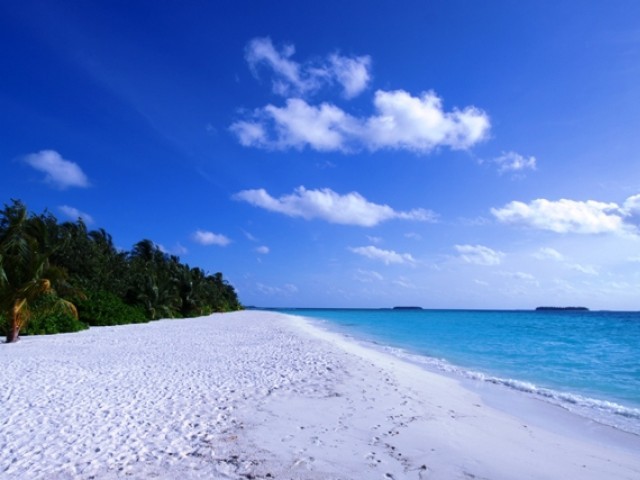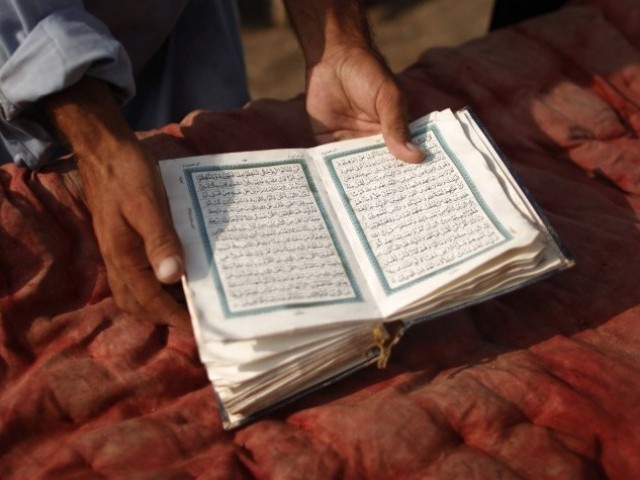By Rabia Ahmed The Express Tribune 27 September 2012http://blogs.tribune.com.pk/story/14065/please-help-me-im-all-alone/

Please help me; I’m all alone

When the ship sank, we swam ashore onto a beach, six of us men, and three women who quickly moved away.
Conferring amongst ourselves we agreed that we should set off immediately to explore the place and see how best to return home.
Even by climbing a tree and squinting into the distance we saw no sign of land or ship anywhere on the sea that surrounded us, nor any sign of life on this little island: no smoke, no huts, nothing. But there were trees all around.
It was a bountiful land.
Like a gigantic orange vitamin-C the sun sank into the water, trailing indigo, deep blue and finally a rich velvet black, and still the women sat on the very edge of the beach.
Alone on an island, three women with six strange men, it was a dishonourable situation. Sometime in the night when three shots rang out, we realised that honour had been restored. We were not allowed to touch them, so it was the tide that carried them away.
We scattered in silence to look for food.
The oldest among us was quickly successful. He caught three birds, and two of the men volunteered to prepare them. The rest of us scattered again to look for water.
I had barely left when I heard shouts, and returning saw two of the birds dead on the ground, and next to them one of the men, also dead. The other man stood over him, a rock in his hand.
‘The dirty infidel!’ he spat, his voice a breathless snarl.
‘He twisted their necks in his filthy hands.’
He looked fiercely around at us.
‘We cannot eat these birds. They are not halal.’
We lifted the dead man and dropped him over some rocks, and threw some sand onto him. Then once again we walked away to search for water.
I pushed through some trees and found myself at the edge of a slight drop below which a stream flowed over some rocks. Soon I was joined by another man, the youngest.
‘You found it!’ he exclaimed, and together we slid and slipped down the slope right into the stream.
Laughing, we splashed each other for a while.
Then we found some large leaves, and scooping up some water, carried it carefully up the slope. When we got to the very top, my companion slipped and dropped his leaf.
‘Ya Ali!’ he exclaimed ruefully.
‘What a careless fellow I am! You go on,’ he said with a nod towards our camp.‘I’ll get some more water and follow’.
He returned to the stream, but I didn’t move from my spot.
It was a while before I returned with the water. My companion remained in the stream, his body floating face up where I had left it.
The four of us ate only some berries and roots. When two men got up to relieve themselves, the rest of us lay back and talked quietly among ourselves. Suddenly we heard a shout, and a loud report. We ran in the direction of the noise, and found the man (he who had shot the women) holding a gun, the other man at his feet, a small dark hole in his chest.
‘The uncircumcised ba***rd!’ hissed the man with the gun, and turned the dead man over with his foot.
A thin silver chain swung across the man’s shirt, its ornate crucifix coated with the owner’s blood.
We heaved the man over the rocks into the sea, and returned to our camp. Nobody spoke, and when we settled down to sleep we lay isolated, each man within himself, rigidly estranged from his neighbour.
Early next morning we awoke for prayers. I noticed the man on my left shooting covert glances at me, so when I had turned my head to either side with a quick ‘Peace be on you, and the mercy and blessings of Allah,’ I asked him bluntly why he was looking at me.
‘You raise your hands to your shoulders before you kneel,’ he said, and I didn’t like the look in his eyes.
I looked at our third companion for support, but it was obvious where he stood.
We each of us moved, but I moved a little faster than either of them. Even though one had a gun, my knife was quicker.
As I write this, they both lie dead on either side of me, in this bountiful place we found. I shall cast this letter into the sea in a bottle I took from the pocket of one of these men.
If anyone reads this, help me please.
I am all alone.



